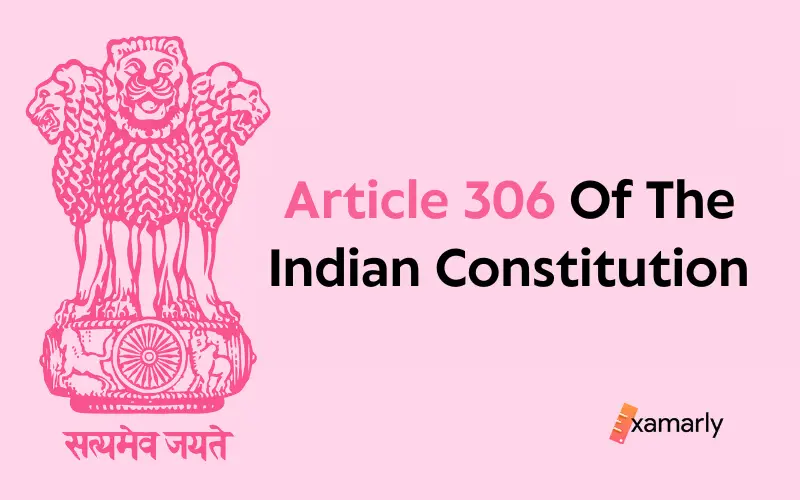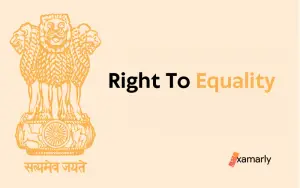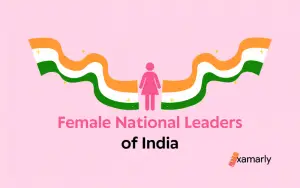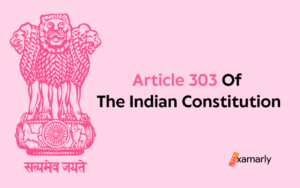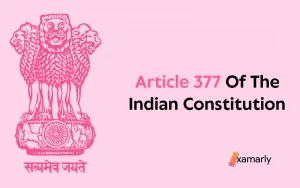Article 306 of the Indian Constitution stated the provisions relating to the power accorded to certain States in Part B of the First Schedule to impose restrictions on trade and commerce.
Let’s dig deeper into the article to have a better understanding of it and know which amendment led to its removal from the Indian Constitution.
The Indian Constitution provides for the freedom of trade, commerce, and intercourse throughout the territory of India under its Part XIII which is called Trade, Commerce and Intercourse within the territory of India and includes Article 301 to Article 307. These articles state that trade, commerce, and intercourse throughout the territory of India shall be free, subject to the other provisions of the Constitution. The government can impose reasonable restrictions on the freedom of trade, commerce, and intercourse in the public interest, but it has to be done by law and not by executive action. It is important to note that these provisions are subject to the overall regulatory framework of the Indian Constitution and the laws passed by the Indian Parliament and State legislatures in the interests of the nation as a whole.
- Trade, Commerce, and Intercourse Within The Territory Of India
- Article 306 Of The Indian Constitution – In Detail
- Omission Of Article 306 Of The Indian Constitution
- FAQs Related To Article 306 Of The Indian Constitution
- What is Part B of the First Schedule of the Indian Constitution?
- What are the states listed in Part B of the First Schedule?
- What does it mean that these states have special powers to impose restrictions on trade and commerce?
- Are there any limitations on the powers of these states to impose restrictions on trade and commerce?
- How does the power of these states to impose restrictions on trade and commerce affect freedom of trade and commerce within India?
- Which Amendment Act repealed Article 306 from the Indian Constitution?
Trade, Commerce, and Intercourse Within The Territory Of India
“Trade, commerce, and intercourse within the territory of India” refers to the buying and selling of goods and services, as well as the movement of goods and people, within the geographical boundaries of India. The Indian Constitution guarantees freedom of trade, commerce, and intercourse within the territory of India. This means that individuals and businesses have the right to engage in trade and commerce throughout the country without unreasonable restrictions or interference from the government. However, this freedom is subject to reasonable restrictions that can be imposed by the government for the purpose of protecting the interests of the general public, such as for public order, morality, and security. The government also has the power to regulate the movement of goods and people within the country as well as the trade and commerce between the states, through laws passed by the parliament under Article 302.
You Might Also Like To Read Article 305 Of The Indian Constitution
Article 306 Of The Indian Constitution – In Detail
[Power of certain States in Part B of the First Schedule to impose restrictions on trade and commerce.].—Omitted by the Constitution (Seventh Amendment) Act, 1956
The First Schedule of the Indian Constitution outlines the territories of the various states and union territories of India. Part B of this schedule contains a list of states that have been granted special powers to impose restrictions on trade and commerce within their borders. This means that these states have the authority to regulate or prohibit certain types of commercial activity within their jurisdiction, in order to protect the interests of their residents or to address specific economic or social concerns. The specific powers and limitations of these states in this regard may be further defined by laws or regulations passed by the state government or the Indian parliament.
To learn more, read Article 304 Of The Indian Constitution
Omission Of Article 306 Of The Indian Constitution
Article 306 of the Indian Constitution dealt with trade and commerce in States and specified the powers given to certain states in Part B of the First Schedule to impose restrictions on trade and commerce under its provisions.
However, with the introduction of the Seventh Amendment Act of 1956 led to its deletion from the Constitution.
FAQs Related To Article 306 Of The Indian Constitution
What is Part B of the First Schedule of the Indian Constitution?
Part B of the First Schedule of the Indian Constitution is a list of states that have been granted special powers to impose restrictions on trade and commerce within their borders.
What are the states listed in Part B of the First Schedule?
The specific states listed in Part B of the First Schedule are Assam, Meghalaya, Tripura, and Mizoram.
What does it mean that these states have special powers to impose restrictions on trade and commerce?
It means that these states have the authority to regulate or prohibit certain types of commercial activity within their jurisdiction, in order to protect the interests of their residents or to address specific economic or social concerns.
Are there any limitations on the powers of these states to impose restrictions on trade and commerce?
Yes, the specific powers, and limitations of these states in this regard may be further defined by laws or regulations passed by the state government or the Indian parliament.
How does the power of these states to impose restrictions on trade and commerce affect freedom of trade and commerce within India?
While these states have the power to impose restrictions on trade and commerce within their borders, it is subject to reasonable restrictions that can be imposed by the government for the purpose of protecting the interests of the general public, such as for public order, morality, and security.
Which Amendment Act repealed Article 306 from the Indian Constitution?
Article 306 of the Indian Constitution was repealed by The Constitution (Seventh Amendment) Act, 1956.


